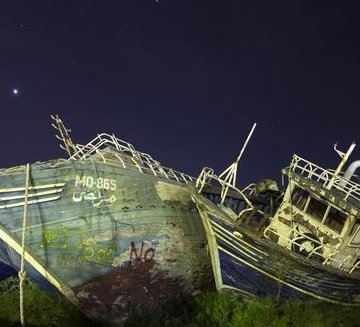- About
- Topics
- Picks
- Audio
- Story
- In-Depth
- Opinion
- News
- Donate
- Signup for our newsletterOur Editors' Best Picks.Send
Read, Debate: Engage.
| located: | Italy, Libya |
|---|---|
| editor: | Vanessa Ellingham |
After last month's string of tragedies in the Mediterranean saw the migrant death toll rise to 1600 for this year alone, public outcry forced EU leaders to make an action plan.
As well as reinforcing search and rescue efforts, the plan also detailed plans to "capture and destroy vessels used by smugglers."
Leaders are now weighing up how best way to bomb the boats, or, as British Prime Minister called it, "smash the gangs" - people smugglers who are doing a roaring trade, particularly in Libya. Last year they moved 170,000 migrants across the sea, fleeing war, discrimination and poverty for a chance at a new life in Europe.
Military strategists are devising plans to use drones and explosives to blow up boats. A risky mission when you consider that the boats can only be hit when they are acquired by traffickers, and when they are empty ie. not when they are still being used by the local fishermen who often sell their boats to traffickers, and certainly not when migrants have been loaded aboard.
UN Secretary General Ban Ki Moon has said the idea is inappropriate, and that there is "no alternative" to negotiating a political truce in Libya which would stabilise the region and hopefully stem the flow of migrants.
"Fishing is an important source of income [in Libya]. If you destroy boats, you may end up affecting the general economic capacity of people."
Destroying the boats could also the EU leaders in hot water - blocking channels for seeking asylum is clearly a breach of their international obligations.
The strategy also fails to address the reasons why people are so desperate to leave their homes - even a people smugglers knows that.
We need solutions that protect those seeking asylum, and allow them to do so safely. Bombing boats puts them at further risk, and will only force them to seek other - potentially more dangerous - methods of escape.
